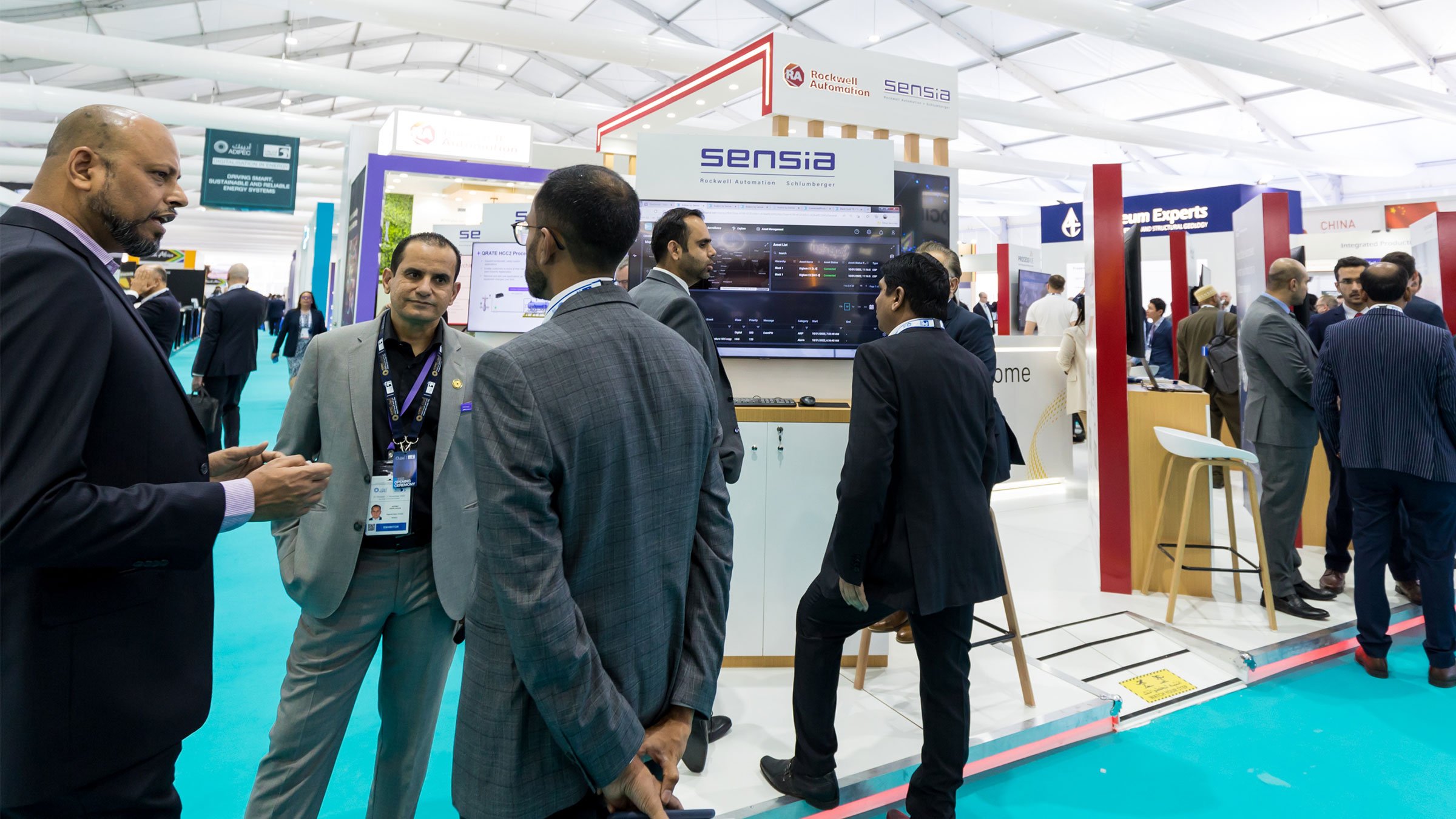Rockwell Automation, Inc. (NYSE: ROK), the world's largest company dedicated to industrial automation and digital transformation, and Sensia, Rockwell's joint venture with SLB, announced a successful ADIPEC 2022 where digital end-to-end solutions continue to help oil and gas operators play their part in the energy transition.
As the world continues its pathway toward a low-carbon future there is a growing alignment between the need to deliver energy and the need to contain emissions. For the oil and gas sector, that does not only mean keeping a focus on the present by delivering the energy that we urgently need in a safe, efficient, and sustainable manner, but also planning for a low-carbon future by developing innovative sustainable energy solutions. Having the right energy mix is vital in the fight against climate change, while also giving people access to electricity and energy.
What is required is a balanced mix of energy solutions that over time will transition towards a net zero future. It is solutions to support those seemingly disparate ambitions that Rockwell Automation displayed on its stand at ADIPEC 2022.
One of the technologies that will become increasingly important during the energy transition is Carbon Capture Utilization and Storage (CCUS). The Middle East region is becoming increasingly important paving the way with ambitious plans to expand its CO2 utilization capabilities.
Rockwell Automation offers end-to-end solutions to support CCUS projects. This includes medium voltage drives, control systems, safety systems, cybersecurity solutions, and designing a digital twin for the carbon capture process. For a CCUS project process system, users face the persistent challenges of balancing productivity against budget and resource constraints as well as proactively addressing evolving operational risks. These challenges can be met, and real productivity gains achieved in all areas of the process with the PlantPAx® distributed control system (DCS). Allied with this safety system is delivered through AADvance® fault tolerant control system, which is a truly distributed, scalable safety instrumented system.
A modern DCS for oil and gas operations
Rockwell Automation is playing a crucial role in the transition with its PlantPAx® DCS system. The system utilizes a common automation platform for seamless integration between critical process areas and the balance of the oil and gas facility. A modern distributed control system (DCS) provides a wide range of architectural options for increased flexibility. The same platform can be used for single stations or large distributed architectures. It also offers scalable system capabilities — HMI, batch management, and data collection that does not require extensive architectures — ideal for process skid equipment and rapid integration.
Moving to remote operations capabilities through the Connected Enterprise
Autonomous or unmanned operations have long been a goal for the oil and gas industry and with advances in automation, that objective is now within reach. Both from a safety and cost perspective reducing or eliminating the workforce from offshore platforms has been an attractive option. Offshore platforms go through two distinct phases, drilling, and production, and while the latter has always been considered the easiest to achieve both scenarios are within reach.
Most of the control and automation technologies that are needed to develop an unmanned facility are already entirely understood and used offshore by the oil and gas industry. Achieving this ambition just requires a change in mindset to employ offshore data capture and communications to enable remote control, and remote condition monitoring of the offshore systems. Rockwell is already working with a major NOC to deliver a robotic offshore platform and that is sure to be the first of many.
Rockwell Automation solutions are helping operators realize the Connected Enterprise and reap the exponential benefits from the convergence of automation, communications, and information technology across digital oilfields, pipelines, and refineries through a holistic approach.
Reducing the oil and gas carbon footprint
For the current energy production, Sensia, Rockwell’s joint venture with SLB, has several front-end solutions facilitating the energy transition. Sensia unifies measurements, intelligence, and action to optimize decisions and dramatically reduce the time and interactions between detection, diagnosis, and resolution. On and offshore, the production improvements available through intelligent automation deliver greater operational efficiency and asset productivity leading to improved sustainability.
Backed up by a comprehensive ecosystem of partners
In the ever more complex world of oil and gas operations, an ecosystem of partners that can add real value is crucial. Rockwell and its ecosystem of partners bring comprehensive expertise to match unique customer needs and accelerate digital transformation for the oil and gas sector.
Sebastian Grau, Regional Vice President, Middle East, Turkey, and Africa, says: “No one company can deliver the entire offering required to affect the energy transition required to meet net-zero targets so having strategic partnerships will be crucial. Partner ecosystems can accelerate the pace of digitalization allowing customers to capitalize on the best technology available — from Rockwell Automation and our PartnerNetwork™– to deliver exceptional results at all stages of the business lifecycle. We are stronger together than we are alone and that was evident from our conversations at ADIPEC.”

